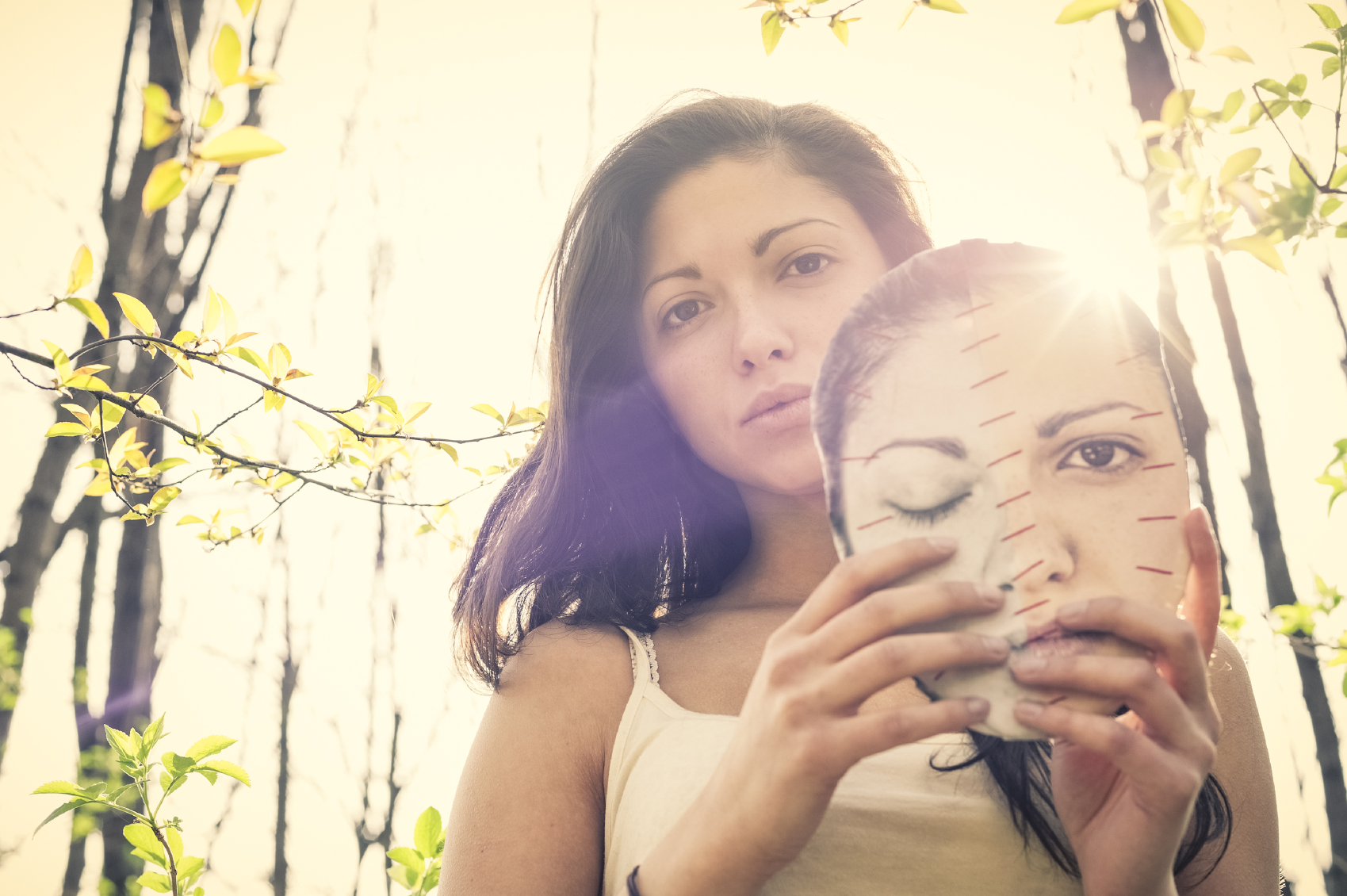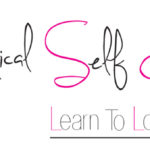
Each year kids of all ages don costumes and knock on doors, while neighbors greet them with all kinds of sweet goodies.
While it’s fun to make believe and play dress-up every now and then, what about the rest of the year?
What if you’re constantly haunted by the ghosts of self-doubt and low self-esteem?
What if you’re surrounded by voices of “…not tall enough, not skinny enough, not young enough, not sexy enough, or just plain not good enough?”
What if every day you felt like you were bending over backwards trying to become the person you think you’re supposed to be – instead of embracing the real person you actually are. You devote copious amounts of time, energy, and money trying to shoehorn yourself into that little box the world wants you to occupy, desperately hoping they’ll give you the sweet treats of social approval and acceptance that everyone craves.
All of a sudden, every day becomes Halloween.
Well, now it’s time to say enough! It’s time to rip off the mask of low self-esteem and negative body image you’ve been hiding behind and reveal the beautiful, authentic self-that’s brimming underneath. How, you ask yourself, do I do this? You begin by discovering a treat that’s so much sweeter than any piece of candy could ever hope to be — the sweet treat of self-love!
Who Are You Trying to Impress?
Of course we come in all shapes, sizes, colors, and abilities. So why not celebrate our uniqueness instead of straining to fit someone else’s idea of beauty?
Society bombards us with messages promoting the so-called “perfect” look. We’re supposed to have skinny, toned bodies and smooth, flawless skin. The pressure comes from the media – in the form of supermodels, pop stars, movie stars, and other celebrities – and from people we know. When women think their friends and parents value thinness, they are more likely to experience lower self-esteem and a negative body image. What’s really alarming is that when parents make comments about body appearance – like telling your daughter she should try to be skinny – young women report lower satisfaction with their bodies (Krcmer, Giles, and Helme, 2008).
All these voices can affect us in negative ways. The thinner a woman thinks the cultural standard of beauty is, the thinner her own personal ideal size will be, and the more body shame she’ll experience (Bessenoff and Snow, 2006). What’s more, the bigger gap you see between what you “think” you should look like and what you actually look like, the more likely you’ll dwell on how you stack up to other people – and the more you’ll experience body dissatisfaction and low self-esteem (Bessenoff 2006). And the more dissatisfied you are with you, the more time you’ll spend worrying about how you compare with other, supposedly prettier women.
Did you know that the more women engage in social comparison, the more likely they are to report disordered eating behaviors? (Lindner, Tantleff-Dunn, and Jentsch 2012) Social comparison with both celebrities and peers can negatively impact our emotions in many ways (Bissell and Rask, 2010; Krcmar, Giles, and Helme, 2008; Shomaker and Furman, 2007):
- It distorts the importance we place on having the “right” physical appearance
- It creates a greater discrepancy between our “ideal” body and our “actual” body
- It makes us more vulnerable to peer pressure to stay thin
- The more we endorse the “thin” ideal, the more dissatisfied we are with our own bodies
When we buy into the mantra that our bodies must be “perfect”, and when we obsess over how we measure up to other women who we think are perfect, it can lead us to a very unhealthy place. Our minds, hearts, and energy are sidetracked into hiding behind a mask of self-doubt, trying to project the “right” body image to the world instead of revealing the authentic person we already are.
This drive to become something we aren’t can consume our whole lives – from our fashion choices – dressing for others instead of for ourselves – to unhealthy diet and exercise behaviors with the goal of being skinny instead of healthy. We spend thousands of dollars on cosmetic surgery, not so much to please ourselves, but to try to conform to this artificial ideal that we’ve internalized.
Making Peace with the Voice of Social Comparison
The reality is that we can’t always control the messages we get from the outside world. And that voice of comparison never completely goes away. The good news is that you have a choice – to make peace with the outside voice and start listening to the authentic voice of the real you.
In a society that emphasizes the importance of physical appearance, and measures our value against artificial standards set by other people, you can push back simply by remembering the wonderful person who resides on the inside (Fenamore 2014).
Take some time to look and listen within. What are your strengths? What are your special talents? What makes you beautiful and unique? Think about your values and your dreams. What’s important to you?
When you take the time to get to know – and embrace – the real you, it gives you a different outlook. It’s an important step down the path away from masking our self-doubt to embracing the power of radical self-love.
Embracing Radical Self-Love
Look in the mirror. Smile at the woman looking back and say, “I love you.” That’s right. Love yourself right now, as you are now, and not as you wish you could be.
But I need to lose a few pounds, you’re thinking. I need to get a better job! I need to find a new mate!
That’s okay. You can work on those things if you need to do so. But first love yourself. Just like you would a significant other. Be kind to yourself. Take yourself on a date and buy a nice non-eatable treat for yourself every once in a while.
When you first embrace the power of radical self-love, you can approach other situations from a better place. If you still need to lose some weight, you can focus on feeling – and yes, looking – your best, not to please the rest of the world, but for your own health and happiness. You can take the same self-confidence into your career, your relationships, your body image and other aspects of your life.
One time, a group of researchers had some women look at pictures of thin models. What they found was very interesting. When looking at pictures of skinny models, the ladies with low self-esteem experienced more negative feelings, lower body esteem, and greater internalization of the so-called “thin ideal” body image that we see in the entertainment and fashion media. Women with high self-esteem were less affected by the pictures (Jones and Buckingham 2005). In other words, when you have confidence in yourself, you may be less concerned with what the outside world thinks women should look like. Instead, you’re more likely to embrace the real you!
Unmasking Your Authentic Self
When you embrace the gift of radical self-love, allowing yourself to become the confident, authentic woman you were born to be, some amazing things can happen.
You’ll approach weight release and emotional healing from a place of healthy self-esteem and a positive body image. You’ll start traveling down a healthier path to the happier life you’ve been seeking. It’ll be more about taking good care of yourself, and less about conforming to some manufactured idea of perfection.
Best of all, you’ll finally rip off the mask of trying to be someone else and reveal the beautiful, unique spirit that already lives inside of you! After all, Halloween is only supposed to come one night a year!
Sources:
- Bessenoff, Gayle. (2006). Can the Media Affect Us? Social Comparison, Self-Discrepancy, and the Thin Ideal. Psychology of Women Quarterly, 30 (2006), 239-251.
- Bessenoff, Gayle R., and Daniel Snow. (2006). Absorbing Society’s Influence: Body Image Self-Discrepancy and Internalized Shame. Sex Roles, 54, 727-731.
- Bissell, Kimberly and Amy Rask. (2010). Real Women on Real Beauty: Self-Discrepancy, Internalisation of the Thin Ideal, and Perceptions of Attractiveness and Thinness in Dove’s Campaign for Real Beauty. International Journal of Advertising, 29(4), 643-668.
- Fenamore, Laura. (2014). Your Body Image Match: It May Be Different than You Think. eHarmony. Accessed from https://www.eharmony.com/dating-advice/about-you/your-body-image-match-it-may-be-different-than-you-think/#.ViPhFH6rSM8.
- Jones, April M. and Justin T. Buckingham. (2005). Self-Esteem as a Moderator of the Effect of Social Comparison on Women’s Body Image. Journal of Social and Clinical Psychology, 24(8), 1164-1187.
- Krcmar, Marina, Steve Giles, and Donald Helme. (2008). Understanding the Process: How Mediated and Peer Norms Affect Young Women’s Body Esteem. Communication Quarterly, 56(2), 111-130.
- Lindner, Danielle, Stacy Tantleff-Dunn, and Florian Jentsch. (2012). Social Comparison and the “Circle of Objectification.” Sex Roles, 67(2012), 222-235.
- Shomaker, Lauren B. and Wyndol Furman. (2007). Same-Sex Peers’ Influence on Young Women’s Body Image: An Experimental Manipulation. Journal of Social and Clinical Psychology, 26(8), 871-895.









Love. It’s really good, Laura. You’re addressing issues that people waste so much time and energy on. We are always comparing ourselves to others, but if we would embrace our talents and strengths and learn to appreciate them, a lot of time and grief would be saved that we could spend nurturing ourselves.
and you dear Sally are a great role model for your 2 daughters and for people all over the world! really. you are. xolaura
Thank you so much for addressing issues that affect so many women. The more people hear your message the better.
thank you so much Sarah…self love is so important. Thank you for your feedback! and support.
thank you and nice to meet you Sarah!